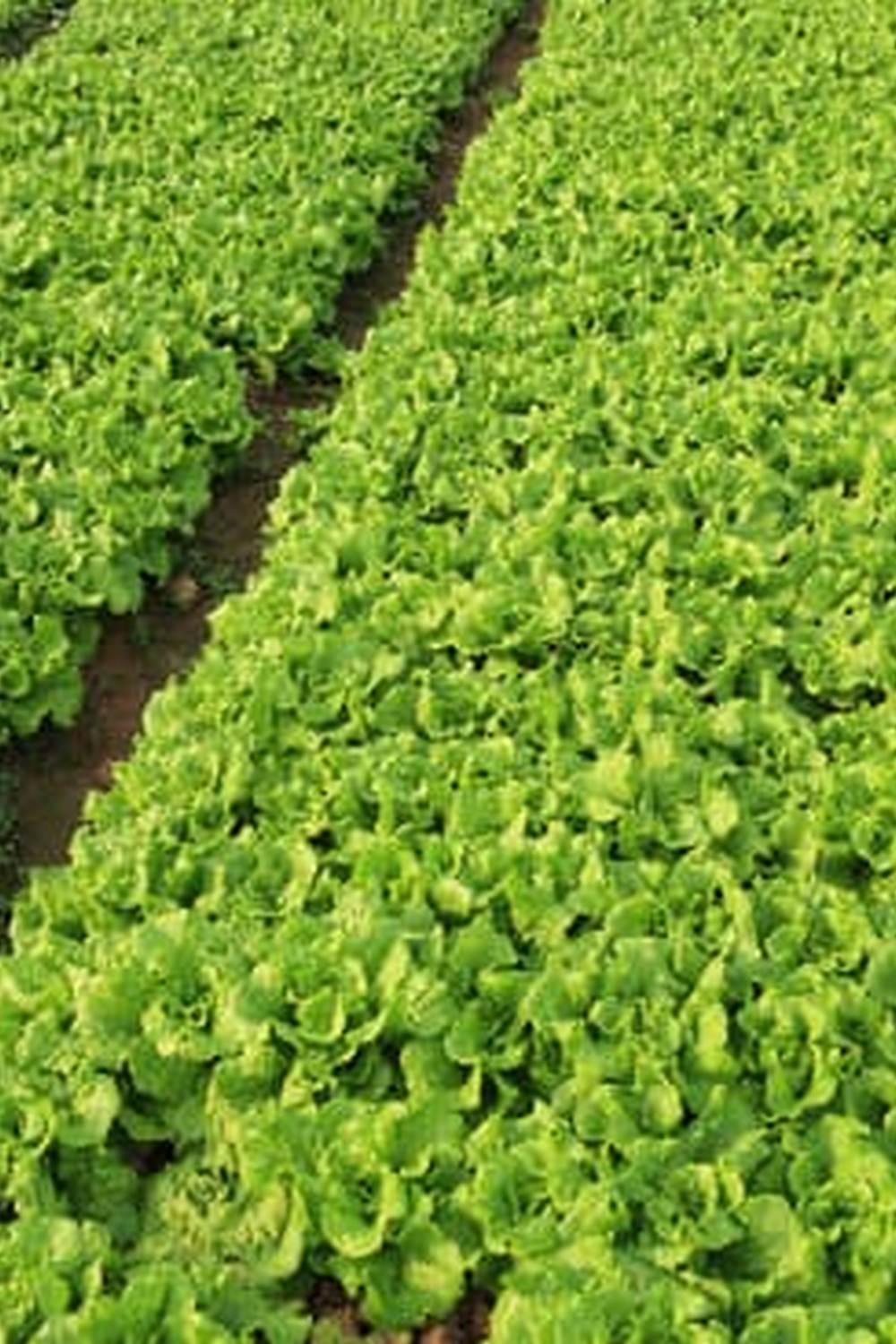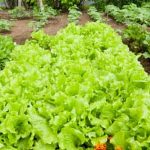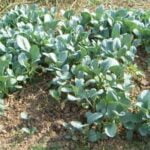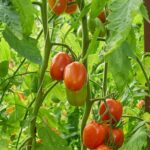Are you wondering, “Is Treflan safe for vegetable gardens?” Treflan is a popular herbicide used by gardeners and farmers to control weeds in their vegetable gardens. In this article, we will delve into the safety and impact of Treflan on vegetable gardens. We will also explore its benefits, common misconceptions, proper usage, and alternative options for those looking to maintain a healthy and thriving vegetable garden.
Treflan herbicide has been widely used for years to effectively manage weed growth in agricultural settings. Its active ingredient, trifluralin, works by inhibiting the germination of weed seeds, making it a valuable tool for maintaining a clean and weed-free garden. However, many questions arise regarding its impact on the safety of vegetable gardens and whether it poses any risks to human health or the environment.
Understanding Treflan’s impact on vegetable gardens is essential for gardeners who want to make informed decisions about using herbicides in their gardening practices. In this article, we will explore the potential effects of Treflan on your vegetables and soil health, as well as its overall safety for use in vegetable gardens. We will also address any misconceptions about Treflan and provide guidelines for using it safely while considering alternative options for weed control in vegetable gardens.
Understanding Treflan’s Impact on Vegetable Gardens
Treflan herbicide is a pre-emergent herbicide commonly used to control annual grasses and broadleaf weeds in vegetable gardens. It works by inhibiting the growth of weed seedlings, preventing them from establishing and competing with the desirable vegetable plants. This can be especially beneficial for gardeners who are looking for an effective way to maintain the health and productivity of their vegetable gardens.
When considering the impact of Treflan on vegetable gardens, it is important to understand how the herbicide interacts with the soil and the plants. Treflan contains a chemical known as trifluralin, which creates a barrier in the top layer of soil where it is applied. This barrier prevents weed seeds from germinating and infiltrating the garden, allowing vegetable plants to thrive without competition.
It is important to note that while Treflan can be effective in controlling weeds, its application requires careful consideration to ensure that it does not adversely affect the vegetables. The safety of using Treflan in vegetable gardens is a topic of concern for many gardeners, who want to ensure that their produce remains safe for consumption.
When used properly and according to labeled instructions, Treflan can provide effective weed control without posing a significant risk to vegetable crops. However, it is essential to follow safety guidelines and avoid using Treflan near water sources or in areas with high foot traffic by people or pets.
- Effectively controls annual grasses and broadleaf weeds
- Inhibits weed seedling growth
- Creates a barrier in the soil
The Safety of Treflan for Vegetable Gardens
Treflan, also known as trifulralin, is a pre-emergent herbicide that is commonly used in vegetable gardens to control weeds. When used correctly, Treflan can be an effective tool for managing weeds and promoting healthier vegetable plants. However, many gardeners have concerns about the safety of using Treflan in their vegetable gardens.
One common concern is whether Treflan is safe for edible crops. It’s important to note that Treflan should only be used on established vegetable gardens and not on newly planted seeds or transplants. When applied properly, Treflan does not pose a significant risk to human health. Additionally, it has a short half-life in the soil, meaning it breaks down relatively quickly and reduces the potential for residual effects on crops.
To ensure that you are using Treflan safely in your vegetable garden, consider these tips:
- Read and follow the label instructions carefully
- Avoid applying Treflan near water sources
- Wear protective clothing and equipment during application
Although research suggests that when used correctly, Treflan is safe for use in vegetable gardens, some gardeners may still have reservations. If you are concerned about using Treflan in your garden, there are alternative options to consider:
- Mulching: Using organic mulches like straw or wood chips can help suppress weed growth without relying on herbicides
- Hand weeding: Regularly removing weeds by hand can be labor-intensive but effective for small garden plots
- Natural weed killers: There are organic and natural herbicides available that can be used as an alternative to synthetic chemicals
Ultimately, the decision to use Treflan or explore alternative options in your vegetable garden is a personal one. By carefully weighing the benefits and potential risks, you can make an informed choice for maintaining the health and productivity of your garden.
The Benefits of Using Treflan in Vegetable Gardens
Treflan herbicide has been a popular choice for vegetable gardeners due to its effectiveness in controlling weeds. When used properly, Treflan can provide several benefits for vegetable gardens, making it a valuable tool for maintaining a healthy and productive garden.
Weed Control
One of the primary benefits of using Treflan in vegetable gardens is its ability to effectively control weeds. Weeds compete with vegetables for water, nutrients, and sunlight, which can inhibit their growth and reduce crop yields. By applying Treflan as directed, gardeners can prevent weed growth and keep their vegetable garden beds clear of unwanted plants.
Long-Lasting Protection
Treflan provides long-lasting residual control, which means that a single application can protect the vegetable garden from new weed growth for an extended period of time. This can save gardeners time and effort in constantly battling against weed infestations, allowing them to focus on other aspects of growing a successful vegetable garden.
Improves Water Retention
In addition to weed control, Treflan also helps improve water retention in the soil by reducing evaporation. This is especially beneficial during dry periods when adequate water supply is crucial for keeping vegetables healthy and thriving. By retaining moisture in the soil, Treflan contributes to better overall plant health and increased yields.
Overall, when used responsibly and according to label instructions, Treflan can be a valuable asset for maintaining a productive and healthy vegetable garden. However, it is important for gardeners to understand the safety considerations when using this herbicide in order to make an informed decision about its use.
Common Misconceptions About Treflan in Vegetable Gardens
There are several common misconceptions about using Treflan in vegetable gardens that are important to address. Many gardeners may have concerns about the safety and effectiveness of Treflan, leading to misunderstandings about its use.
Misconception 1: Treflan Is Harmful to Vegetable Plants
One common misconception about Treflan is that it can be harmful to vegetable plants. However, when used according to label instructions, Treflan is safe for use around most vegetable crops.
It is essential to follow the manufacturer’s guidelines regarding application rates and timing to ensure the safety of your vegetables. Additionally, it is important to note that Treflan should not be used on certain vegetable crops, so always consult the label or a gardening professional before using it in your garden.
Misconception 2: Treflan Is Not Environmentally Friendly
Some gardeners may believe that using Treflan in their vegetable garden is harmful to the environment. However, when used responsibly and according to directions, Treflan breaks down quickly in the soil and has minimal impact on the environment. Additionally, by controlling weeds with an herbicide like Treflan, gardeners may reduce the need for mechanical cultivation methods that can be more disruptive to the soil and surrounding ecosystem.
Misconception 3: Treflan Is Not Effective for Controlling Weeds
Another misconception is that Treflan is not effective at controlling weeds in vegetable gardens. In reality, when used correctly, Treflan can be an effective tool for preventing weed growth and competition with vegetable plants. By creating a barrier in the soil that inhibits weed seed germination, Treflan can reduce the need for manual weeding and help maintain a healthy growing environment for vegetables.
How to Use Treflan Safely in Vegetable Gardens
Treflan herbicide is a popular choice for controlling weeds in vegetable gardens due to its effectiveness. However, it is crucial to use Treflan safely to avoid any negative impact on your vegetables and the environment. Here are some important tips on how to use Treflan safely in your vegetable garden.
Firstly, it is essential to carefully read and follow the instructions on the product label. This includes applying the herbicide at the recommended rate and time, as well as taking necessary precautions such as wearing protective clothing and gear. Additionally, make sure to store Treflan in its original container away from children and pets.
Another important aspect of using Treflan safely is to avoid spraying it on windy days. This can cause the herbicide to drift onto unintended areas, potentially harming other plants or wildlife. It is also advisable to avoid using Treflan near water sources or during rainy weather to prevent runoff and contamination.
Furthermore, consider implementing integrated pest management practices alongside using Treflan. This includes regularly monitoring your garden for pests and weeds, practicing good cultivation techniques, and using biological controls when possible. By incorporating these practices, you can reduce the reliance on herbicides like Treflan while still effectively managing weed growth in your vegetable garden.
| Aspect | Guidelines |
|---|---|
| Read label instructions | Follow recommended application rates and safety precautions |
| Avoid spraying on windy days | To prevent herbicide drift onto unintended areas |
| Implement integrated pest management practices | Monitor for pests and weeds, practice good cultivation techniques, use biological controls |
Alternative Options to Treflan for Vegetable Gardens
While Treflan is a popular herbicide for vegetable gardens, some gardeners may prefer to explore alternative options. One alternative to Treflan is using mulch as a natural weed barrier. Organic mulch, such as straw, wood chips, or compost, can help prevent weeds from growing while also adding nutrients to the soil as it decomposes. This method not only inhibits weed growth but also promotes healthy soil and plant growth without the use of chemicals.
Another alternative to Treflan is hand weeding. While this method requires more labor and time, it is an effective way to remove weeds without the use of herbicides. Regularly inspecting the garden for weeds and carefully pulling them out by the roots can prevent weed overgrowth and maintain the health of your vegetable garden without the need for chemical intervention.
For those looking for a natural herbicide, vinegar can be an effective alternative to Treflan. Household vinegar with a high acetic acid content can be used as a non-toxic herbicide by spraying it directly onto weeds. However, it’s important to note that vinegar can also harm desirable plants if not used carefully.
| Alternative Option | Description |
|---|---|
| Organic Mulch | Natural weed barrier that adds nutrients to the soil |
| Hand Weeding | Labor-intensive but effective in removing weeds without herbicides |
| Vinegar | A non-toxic herbicide that should be used with caution around desirable plants |
Conclusion
In conclusion, the use of Treflan in vegetable gardens is a decision that should be carefully weighed and considered. While Treflan can be an effective herbicide for controlling weeds, it is important to understand its potential impact on vegetable gardens. However, when used properly and according to the manufacturer’s guidelines, Treflan can be safe for use in vegetable gardens.
It is crucial for gardeners to educate themselves on the safety and proper application of Treflan in their vegetable gardens. Understanding the potential benefits and risks of using this herbicide can help gardeners make informed decisions about whether or not to incorporate it into their gardening practices. While Treflan can offer benefits such as weed control and increased crop yield, it is essential to weigh these advantages against any potential safety concerns.
For those who are unsure about using Treflan in their vegetable gardens, there are alternative options available that may be worth exploring. These alternatives may provide effective weed control without some of the potential risks associated with Treflan. Ultimately, each gardener must carefully consider their individual needs and priorities when making the decision about whether or not to use Treflan in their vegetable garden.
Frequently Asked Questions
What Vegetables Is Treflan Safe For?
Treflan is safe to use on vegetables such as beans, peas, carrots, lettuce, peppers, and potatoes. It helps prevent the growth of weeds and protects these vegetables from competition.
Can You Use Treflan on Tomatoes?
Treflan can be used on tomatoes as a pre-emergent herbicide to control weeds. However, it should be applied before planting or transplanting tomatoes to avoid any potential damage to the plants.
How Do You Use Treflan in a Garden?
When using Treflan in a garden, it’s important to follow the application instructions on the product label carefully. Typically, you would apply Treflan before any weed seeds germinate and then incorporate it into the soil. It’s crucial to avoid contact with desirable plants and to water the treated area after application.

If you’re looking to get into vegetable gardening, or are just looking for some tips on how to make your current garden better, then you’ve come to the right place! My name is Ethel and I have been gardening for years. In this blog, I’m going to share with you some of my best tips on how to create a successful vegetable garden.





